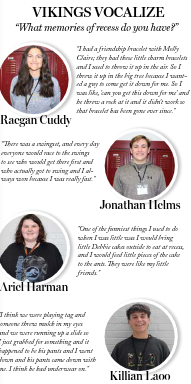While most students end up at big, more populated schools like East Tennessee State University or the University of Tennessee, few even consider the thought of attending anything out of the ordinary.
The majority of these big colleges prioritize STEM programs like health sciences or forensics and completely overlook humanities and fine arts degrees like history, English, and music.
In this STEM-focused world, not many students choose to take the risk to pursue humanities or fine arts degrees, and even fewer go to colleges that prioritize these subjects.
Liberal arts colleges, while still offering STEM degrees, are the only kind of higher education that prioritizes these humanities and fine arts degrees.
At any other college, these students may not be offered the same opportunities as they would at a college that is focused on their program. Similar to how many go to the University of Tennessee for access to the body farm—a collection of donated bodies collected for forensics students to study—many go to liberal arts colleges to have these same niche opportunities.
While of course schools like the University of Tennessee offer amazing programs for humanities and fine arts majors, students may be overshadowed by the overwhelming amount of people that attend these big schools.
At a liberal arts school, not only are they almost solely focused on these degrees, but they also, on average, have a smaller class size than these state schools, meaning students have more of a chance of being involved in these programs and are able to get more attention from professors and other faculty to help them along their college career.
At THS, even fewer end up going to liberal arts colleges than usual, and this number has heavily declined over the years.
Out of a group of fifty randomly selected seniors from the class of 2025, only four are pursuing fine arts degrees, and only one is pursuing a humanities degree. Out of these five, only two are planning on attending a liberal arts college.
Similarly, out of a group of fifty randomly selected seniors from the class of 2024, eight pursued humanities/fine arts degrees, and only four attended liberal arts colleges.
These statistics prove that liberal arts colleges and humanities and fine arts degrees are on the decline despite the myriad of opportunities they offer. But it also proves that those who do end up going for these degrees or attending these colleges are breaking the mold.
“I just really like music and the competition of it,” said senior Bronson Tester.
Tester plans to attend the liberal arts college, Liberty University in Lynchburg, VA, for a bachelor’s in music education—a degree that fewer and fewer people are going for each year.
While Tester feels most people don’t go for fine arts or humanities degrees like him because “there’s not a lot of people who really want to do it,” it’s more commonly found that many choose not to go for these degrees or go to liberal arts colleges because they believe these degrees make less money.
The truth of this is not that they make less, but that they require more effort to push oneself to make more. You can’t be an author without pushing yourself to release books on a regular schedule; you can’t be a journalist without first working your way through the ranks; you can’t be a music teacher without constantly looking for jobs to pop up.
While those majoring in STEM degrees may also have a hard time finding jobs in oversaturated fields, those going for humanities barely have any job options to start with. STEM degrees are also viewed as higher value to the general population, causing many to look down on humanities or fine arts degrees as “useless” since there are less job options.
Thus, students that do go to liberal arts schools, or even just those that pursue fine arts and humanities degrees in general, are some of the most passionate students to come out of Tennessee High, since it proves that, despite not having many job options tailored to their major, and having to break through the norm of going for a STEM degree, they are willing to put in the effort to pursue greatness in their chosen professions no matter how STEM-focused the world may be.

















